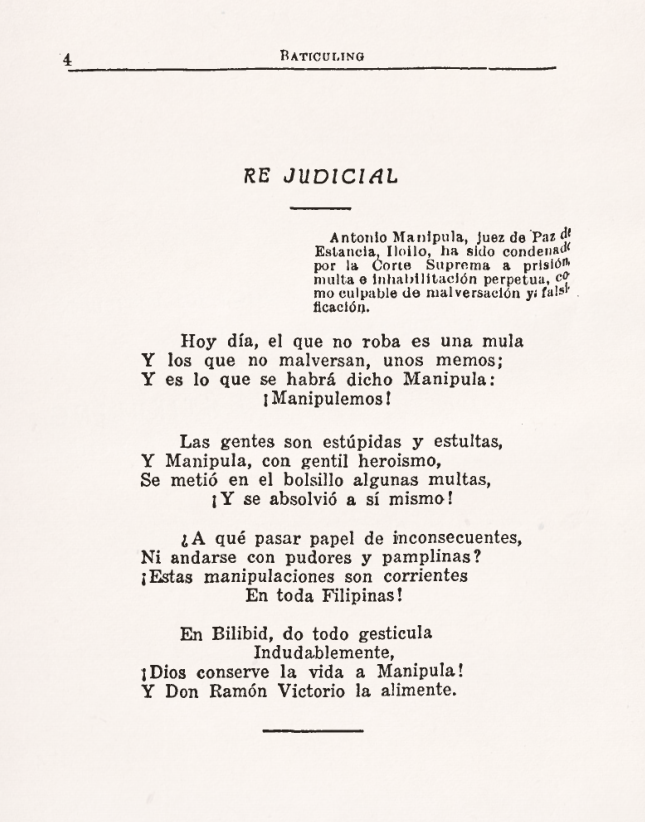These are very rare in English (I don't know how common they are in Spanish); I've identified two poems that have them. A word fr them is headnotes.
Some of these are arguments. From Wikipedia
An argument in literature is a brief summary, often in prose, of a poem or section of a poem or other work. It is often appended to the beginning of each chapter, book, or canto. They were common during the Renaissance as a way to orient a reader within a large work.
For example, Around the World in Eighty Days has an argument at the beginning of each chapter, the first one being:
Chapter I
IN WHICH PHILEAS FOGG AND PASSEPARTOUT ACCEPT EACH OTHER,
THE ONE AS MASTER, THE OTHER AS MAN
If you need a name for a message at the beginning of a poem which is not an argument, you could use the word "headnote". The definition in Collins Dictionary
is
a brief explanatory note prefacing a chapter, poem, story, legal report, etc.
which seems to fit.
They are probably not “epigraphs” — The Poetry Foundation
defines epigraph as:
A quotation from another literary work that is placed beneath the title at the beginning of a poem or section of a poem.
This is a poetry-centered definition. You can have epigraphs before chapters and stories as well. However, they generally have to be quotes from some other work.
I also wouldn't call them prologues. There are some famous poems that have prologues:
The Canterbury Tales, Piers Plowman, Robert Browning's the Two Poets Of Croisic. All of these are actually parts of the poem, written in poetry and not prose.
One poem I found with a headnote is Coleridge's The Rime of the Ancient Mariner, the original version. It starts out as follows, with what Coleridge calls an argument:
THE RIME OF THE ANCYENT MARINERE
ARGUMENT.
How a Ship having passed the Line was driven by
Storms to the cold Country towards the South Pole;
and how from thence she made her course to the
tropical Latitude of the Great Pacific Ocean; and of the
strange things that befell; and in what manner the
Ancyent Marinere came back to his own Country.
The other poem I found with a headnote is by Richard Wilbur. It starts:
Ballade for the Duke of Orléans
who offered a prize at Blois, circa 1457, for the best ballade employing the line “ Je meurs de soif auprès de la fontaine.”
This poem, despite containing the line “I die of thirst, here at the fountain-side” is not a translation of one of the dozen or so Middle French poems we know containing that line, but a new ballade written by Wilbur.

